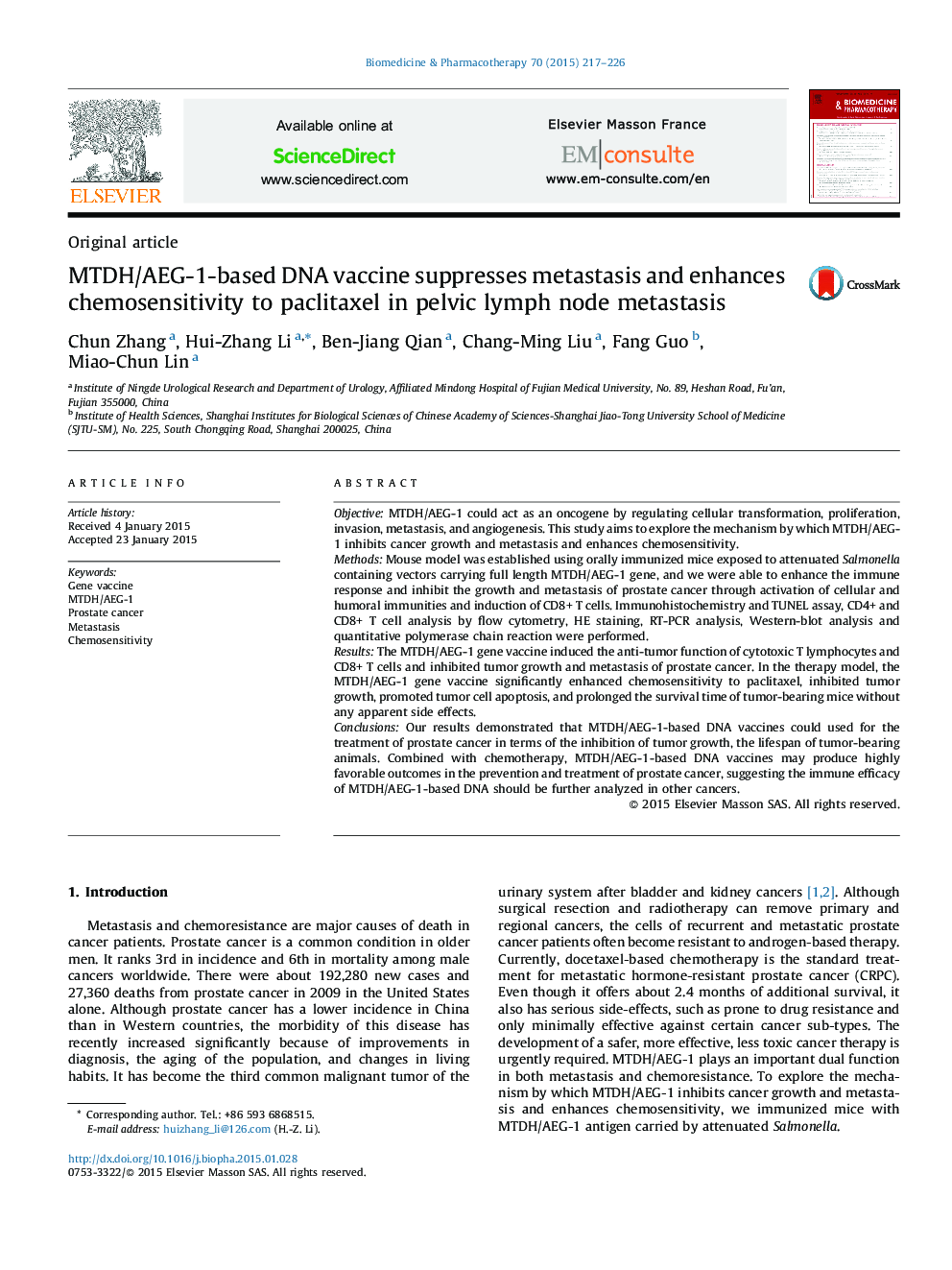| کد مقاله | کد نشریه | سال انتشار | مقاله انگلیسی | نسخه تمام متن |
|---|---|---|---|---|
| 2524008 | 1557972 | 2015 | 10 صفحه PDF | دانلود رایگان |

ObjectiveMTDH/AEG-1 could act as an oncogene by regulating cellular transformation, proliferation, invasion, metastasis, and angiogenesis. This study aims to explore the mechanism by which MTDH/AEG-1 inhibits cancer growth and metastasis and enhances chemosensitivity.MethodsMouse model was established using orally immunized mice exposed to attenuated Salmonella containing vectors carrying full length MTDH/AEG-1 gene, and we were able to enhance the immune response and inhibit the growth and metastasis of prostate cancer through activation of cellular and humoral immunities and induction of CD8+ T cells. Immunohistochemistry and TUNEL assay, CD4+ and CD8+ T cell analysis by flow cytometry, HE staining, RT-PCR analysis, Western-blot analysis and quantitative polymerase chain reaction were performed.ResultsThe MTDH/AEG-1 gene vaccine induced the anti-tumor function of cytotoxic T lymphocytes and CD8+ T cells and inhibited tumor growth and metastasis of prostate cancer. In the therapy model, the MTDH/AEG-1 gene vaccine significantly enhanced chemosensitivity to paclitaxel, inhibited tumor growth, promoted tumor cell apoptosis, and prolonged the survival time of tumor-bearing mice without any apparent side effects.ConclusionsOur results demonstrated that MTDH/AEG-1-based DNA vaccines could used for the treatment of prostate cancer in terms of the inhibition of tumor growth, the lifespan of tumor-bearing animals. Combined with chemotherapy, MTDH/AEG-1-based DNA vaccines may produce highly favorable outcomes in the prevention and treatment of prostate cancer, suggesting the immune efficacy of MTDH/AEG-1-based DNA should be further analyzed in other cancers.
Journal: Biomedicine & Pharmacotherapy - Volume 70, March 2015, Pages 217–226